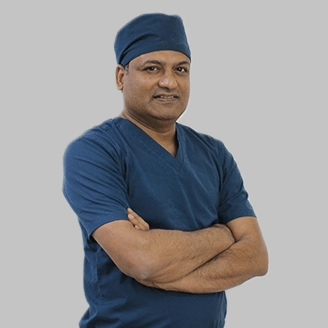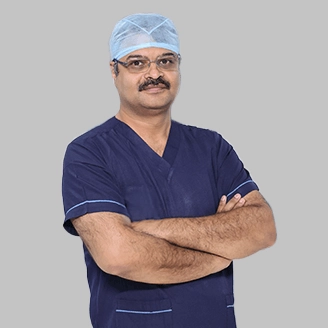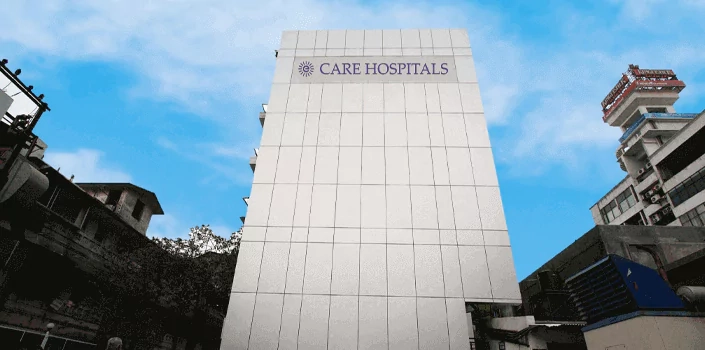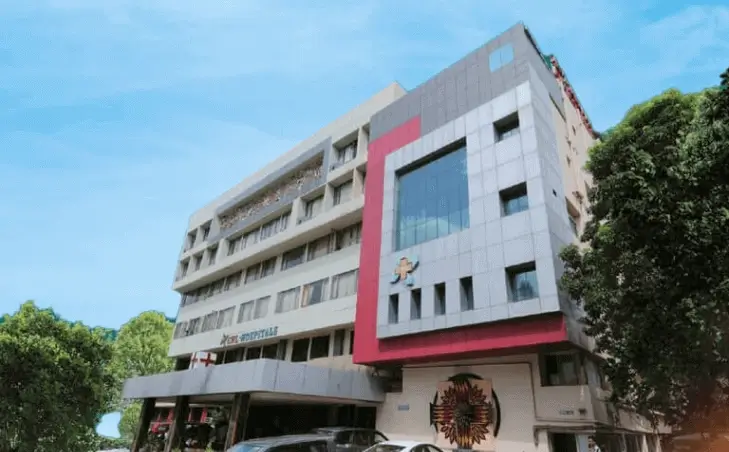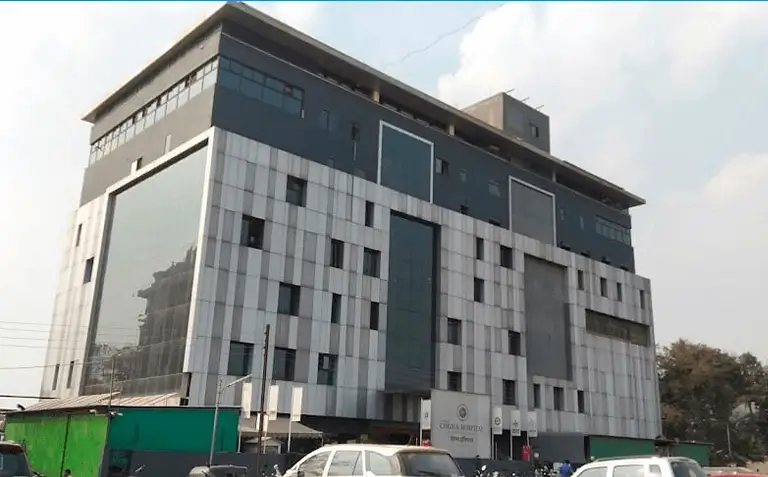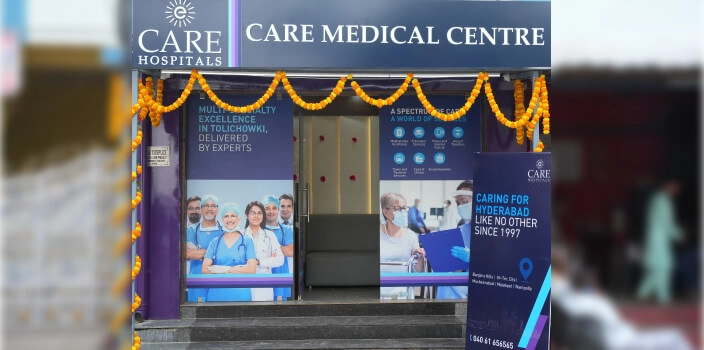-
Doctors
-
Specialities & Treatments
Centre of Excellence
Specialties
Treatments and Procedures
Hospitals & Directions HyderabadCARE Hospitals, Banjara Hills CARE Outpatient Centre, Banjara Hills CARE Hospitals, HITEC City CARE Hospitals, Nampally Gurunanak CARE Hospitals, Musheerabad CARE Hospitals Outpatient Centre, HITEC City CARE Hospitals, Malakpet
HyderabadCARE Hospitals, Banjara Hills CARE Outpatient Centre, Banjara Hills CARE Hospitals, HITEC City CARE Hospitals, Nampally Gurunanak CARE Hospitals, Musheerabad CARE Hospitals Outpatient Centre, HITEC City CARE Hospitals, Malakpet Raipur
Raipur
 Bhubaneswar
Bhubaneswar Visakhapatnam
Visakhapatnam
 Nagpur
Nagpur
 Indore
Indore
 Chh. Sambhajinagar
Chh. SambhajinagarClinics & Medical Centers
Book an AppointmentContact Us
Online Lab Reports
Book an Appointment
Consult Super-Specialist Doctors at CARE Hospitals

Best Hospital for Rectal Prolapse Surgery in Hyderabad
- Advanced Technology
- Shorter Hospital Stay
- Pre & Post-Operative Care
- All Insurance Accepted

Chat With Our Experts
Get second opinion on Whatsapp
25 lakhs+
Happy Patients
Experienced and
skilled surgeons
17
Health Care Facilities
Top most Referral Centre
for Complex Surgeries
Advanced Rectal Prolapse Surgery
Rectal prolapse happens when the rectum pushes out through the anus and causes discomfort along with other symptoms. Doctors often recommend surgery for serious cases or when symptoms are not improving with treatment. You can make better healthcare decisions by learning about the condition's causes, symptoms, & treatment options.
Why CARE Group Hospitals is Your Top Choice for Rectal Prolapse Surgery in Hyderabad
CARE Hospitals leads healthcare services for rectal prolapse surgery in Hyderabad through:
- Expert surgeons at CARE Hospitals bring exceptional skills to rectal prolapse procedures.
- The hospital takes a detailed approach to patient care that sets it apart for rectal prolapse surgeries.
- Patients can access advanced laparoscopic and robot-assisted techniques for colorectal issues.
- The hospital's specialists focus solely on gastrointestinal surgical conditions.
- Patients with multiple medical conditions benefit from team-based care.
Best Hospital for Rectal Prolapse Surgery in Hyderabad


Advanced Surgical Breakthroughs at CARE Hospital
- Robot-assisted systems at CARE Hospitals boost surgical precision significantly.
- Surgical excellence comes through both the Hugo RAS and the Da Vinci X Robot-assisted systems.
- High-definition 3D monitors give surgeons clear views of the surgical field.
- Robot-assisted arms deliver exceptional flexibility and control during procedures.
- Surgeons stay close to patients with open console designs.
Conditions for Rectal Prolapse Surgery
- Doctors recommend surgery when the rectum protrudes fully through the anal canal.
- Surgery helps relieve pain, discomfort, and prevent stool leakage.
- Adult patients face worsening conditions and serious complications without surgery.
- Long-term constipation or diarrhoea often requires surgical treatment.
- Surgery can improve faecal incontinence caused by rectal prolapse.
Types of Rectal Prolapse
- External prolapse: The rectum extends outside the anus and becomes visible.
- Internal prolapse: The rectum drops but stays inside the body.
- Mucosal prolapse: The rectal lining extends beyond the anus.
- Complete rectal prolapse: All rectal wall layers protrude through the anal canal.
- Circumferential prolapse: The entire rectal wall circumference prolapses.
- Segmental prolapse: Only certain parts of the rectal wall circumference protrude.
Pre-surgery Preparation
- Reduce infection risk by taking a shower with antibacterial soap
- Clean your bowels with enemas or laxatives
- Your surgeon will tell you which medications to stop
- Follow a special diet before the surgery
- Get a full picture through physical exams and imaging studies
- Let your doctor know about your medical conditions, allergies and current medications
Rectal Prolapse Surgical Procedure
Doctors perform surgery under general anaesthesia or epidural/spinal block.
Surgery usually takes 1 to 3 hours, based on the complexity of your condition. Doctors might use one of the following surgeries:
- Abdominal approach (rectopexy): Surgeons secure the rectum back in place using sutures or mesh
- Laparoscopic rectopexy: Doctors use small cuts, a camera and special instruments
- Robotic surgery: This gives precise control with smaller incisions
- Perineal approach: This works best for elderly or high-risk patients
- Altemeier procedure: Surgeons remove the prolapsed rectum and connect the remaining parts
- Delorme procedure: Only the prolapsed mucosal lining gets removed
Post-surgery Recovery
Hospital stays typically last 1-7 days, depending on surgery type. Most people return to normal activities after 4-6 weeks. Doctors advise:
- Stay away from straining, lifting and hard exercise for at least 6 weeks
- Eat foods enriched in fibre and drink plenty of fluids to avoid constipation
- Take your pain medications and laxatives as your doctor prescribes
- Some discharge or bleeding might occur up to 6 weeks after surgery
Risks and Complications
The following are some common complications:
- Prolapse returns
- Patients might face infection, bleeding and anastomotic leak
- Constipation or faecal incontinence
- Pelvic abscess, sexual dysfunction and bowel obstruction happen rarely
Benefits of Rectal Prolapse Surgery
- Pain and discomfort go away
- Bowel function gets better
- Serious complications like rectal ulcers and gangrene become less likely
- Life quality improves
- Successfully control the prolapse
Insurance Assistance for Rectal Prolapse Surgery
Most Indian health insurance plans cover this treatment:
- Coverage usually includes hospital stay costs
- Plans often pay for care before and after hospitalisation
- Check with your insurance provider about your coverage
Second Opinion for Rectal Prolapse Surgery
- Another doctor can confirm if you need surgery
- You'll learn about other treatment options
- Specialists share their expert advice
- You'll feel more confident about your health decision
- Bring your medical records and imaging results when you ask for a review
Conclusion
Rectal prolapse affects thousands of people worldwide, though it's not common. Surgery offers the best treatment option for rectal prolapse.
CARE Hospitals in Hyderabad excels at rectal prolapse treatment. Their specialist surgeons leverage advanced techniques like robot-assisted systems to ensure greater precision. On top of that, their comprehensive team approach helps patients with complex medical needs.
Most patients need 4-6 weeks to recover and must follow specific guidelines to avoid complications. The right medical care makes all the difference for people dealing with this challenging condition.
Rectal Prolapse Surgery Hospitals in India
-
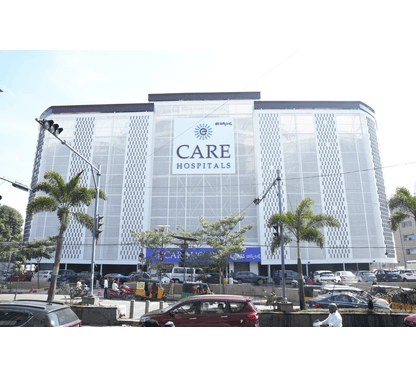
CARE Hospitals, Banjara Hills, Hyderabad
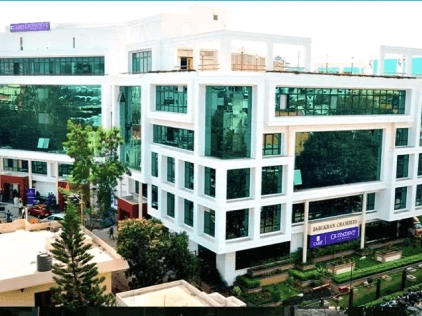
CARE Hospitals Outpatient Centre, Banjara Hills, Hyderabad
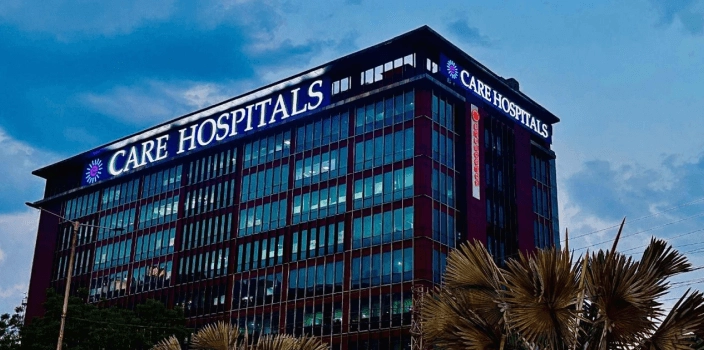
CARE Hospitals, HITEC City, Hyderabad
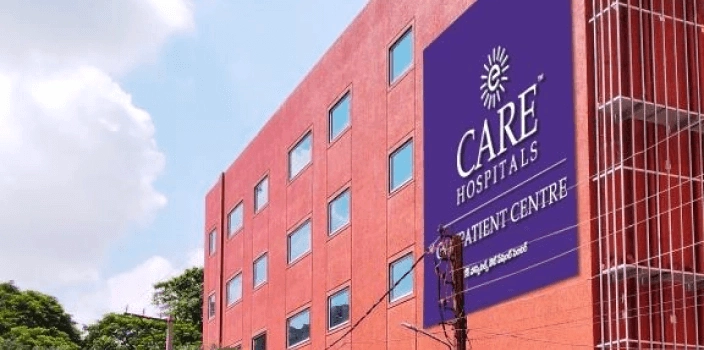
CARE Hospitals Outpatient Centre, HITEC City, Hyderabad
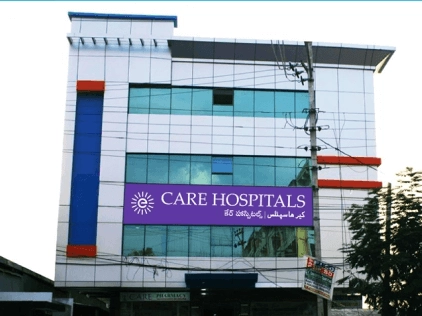
Gurunanak CARE Hospitals, Musheerabad, Hyderabad
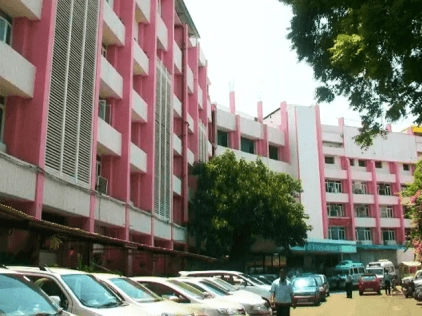
CARE Hospitals, Nampally, Hyderabad
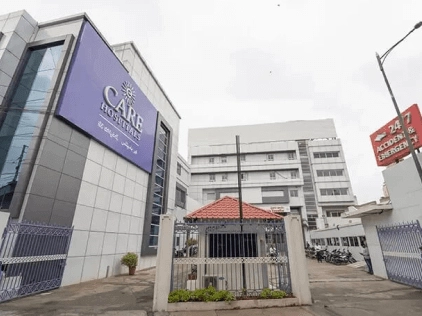
CARE Hospitals, Malakpet, Hyderabad
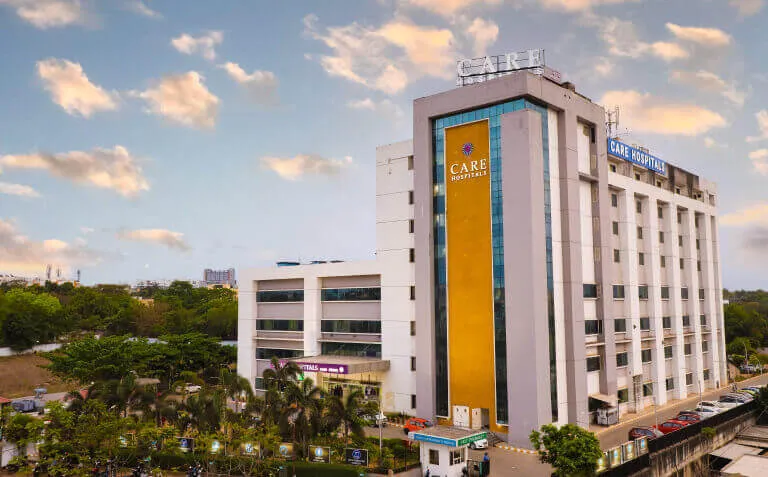
CARE Hospitals, Bhubaneswar
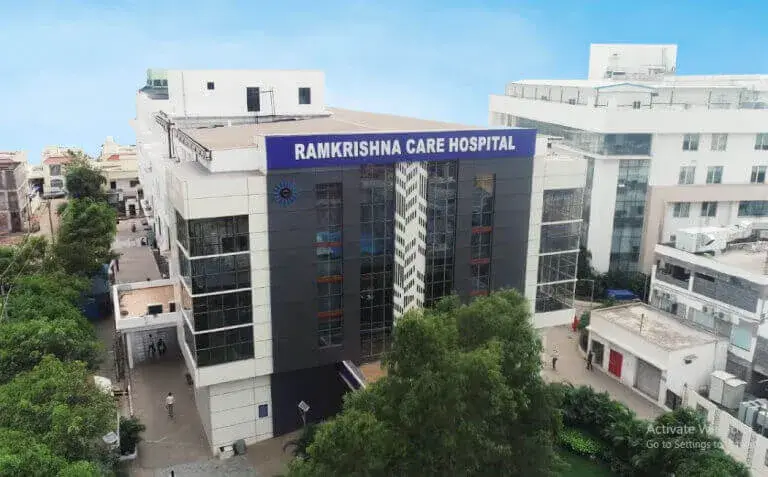
Ramkrishna CARE Hospitals, Raipur
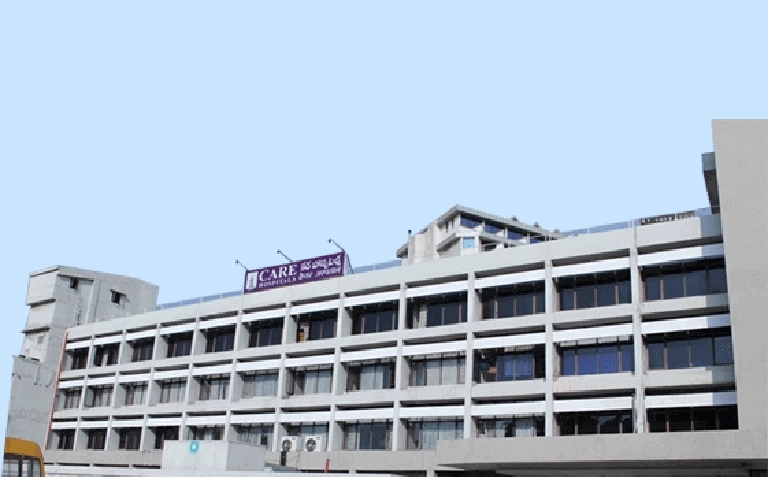
CARE Hospitals, Ramnagar, Visakhapatnam
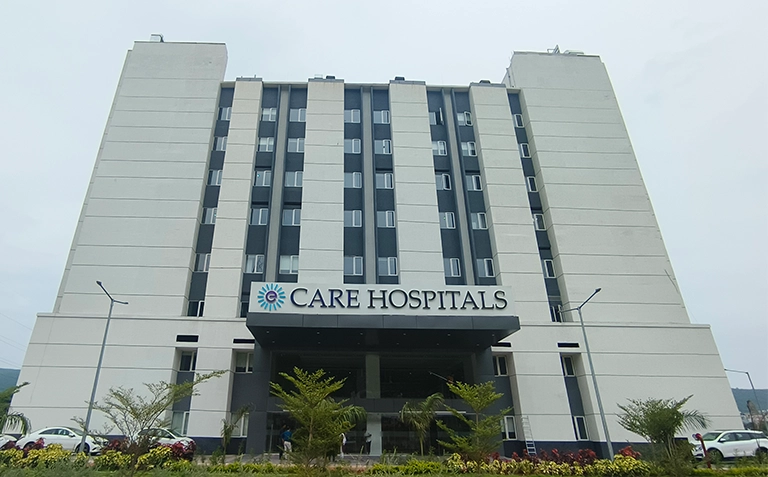
CARE Hospitals, Health City, Arilova
Related Surgeries
- Best Hospital for Cholecystectomy Surgery in Hyderabad
- Best Hospital for Colectomy Surgery in Hyderabad
- Best Hospitals for Colostomy Surgery in Hyderabad
- Best Hospitals for Laparotomy Surgery in Hyderabad
- Best Hospital for Parotidectomy Surgery in Hyderabad
- Best Hospitals for Pancreatectomy Surgery in Hyderabad
- Best Hospitals for Sigmoidoscopy Surgery in Hyderabad
- Best Hospitals for Whipple Surgery in Hyderabad
- Best Hospital for Oesaophagectomy Surgery in Hyderabad
- Best Hospitals for Roux-en-Y Gastric Bypass in Hyderabad
- Best Hospitals for Small Bowl Resection in Hyderabad
- Best Hospital for Choledochocystectomy Surgery in Hyderabad
- Best Hospital for Choledochojejunostomy Surgery in Hyderabad
- Best Hospital for Choledocoduodenostomy Surgery in Hyderabad
- Best Hospital for Fistula Surgery in Hyderabad
- Best Hospital for Piles Surgery in Hyderabad
- Best Hospital for Peroral Endoscopic Myotomy Surgery in Hyderabad
- Best Hospital for Fissure Treatment Surgery in Hyderabad
- Best Hospital for Laser Fistula Surgery in Hyderabad
- Best Hospital for Heller Myotomy Surgery in Hyderabad
- Best Hospital for Rectal Prolapse Surgery in Hyderabad
- Best Gastric Balloon Surgery in Hyderabad
- Adhesiolysis Surgery in Hyderabad
- Best Hospital for Open Nissen Fundoplication GERD Surgery in Hyderabad
- Best Hospital for Hemicolectomy Surgery in Hyderabad
Frequently Asked Questions
This surgical procedure fixes rectal prolapse when the rectum protrudes through the anus. Surgeons use either abdominal or perineal approaches based on your needs.
Doctors recommend this surgery when:
- You can see your rectum protruding through the anus
- The prolapse makes you uncomfortable and affects bowel control
- Conservative treatments haven't helped with recurring episodes
- Healthy adults can typically undergo abdominal procedures
- Older patients or those with health issues might do better with perineal approaches
- The surgery helps patients whose quality of life suffers from prolapse symptoms
The surgery is safe, though all surgical procedures have risks. Elderly or high-risk patients do better with perineal approaches.
Most surgeries last 1 to 3 hours. Laparoscopic procedures often finish faster than open surgeries. Your specific case and surgical approach affect the duration.
Abdominal approaches count as major surgery and need general anaesthesia. On the other hand, perineal approaches are gentler and sometimes work with local or regional anaesthesia.
- Standard surgical risks include bleeding, infection, and anaesthesia complications.
- Bowel reconnection might lead to anastomotic leaks
- Other risks include recurrence of prolapse, constipation, incontinence, sexual problems, and bowel blockage.
- Most patients recover in 4 to 6 weeks
- Perineal surgery needs 2 to 3 days in the hospital
- Abdominal procedures keep patients in the hospital longer, usually 5 to 8 days
- Patients who have laparoscopic surgery go home earlier than those with open surgery
- Surgery makes life better and improves symptoms
- Patients experience less severe faecal incontinence after surgery
- Daily activities become easier as pain decreases
- Bowel function might get better, worse, or stay the same right after surgery.
- Bowel habits can take months to return to normal.
Doctors usually use general anaesthesia to put patients completely asleep. Some patients get spinal block anaesthesia to numb their lower body. Your health and procedure type determine the anaesthesia choice.
You can start walking the day after surgery. Start with quick trips to the bathroom or short walks in hospital hallways. Walking helps prevent complications after surgery.
Still Have a Question?



